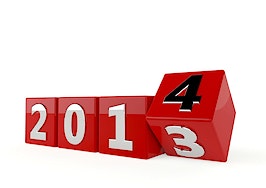Q: I just passed the real estate licensing exam and have begun working as an agent. I now use my personal computer for my work. Can I deduct any part of the cost of the computer?
A: Yes you can. You can claim a deduction whenever you convert personal property to business use. This includes not just computers, but other personal property as well. In the case of a real estate agent, this might also include such items as cars and other vehicles, cameras and cell phones.
When you convert personal property to business use, you must deduct the cost over several years — a process called depreciation. You may not use first-year expensing to deduct the cost in a single year.
How long depreciation takes depends on the property involved. For example, automobiles, computers and computer peripherals have a five-year depreciation period. Office furniture must be depreciated over seven years.
How much you get to deduct over the depreciation period depends on the property’s basis and the percentage of the time you use the asset for business vs. personal purposes.
Basis is just tax lingo for an asset’s value for tax purposes. When you buy a new asset for your business — for example, a new computer — its basis is its cost. However, when you convert property you used for personal purposes to business use, its basis is the lower of (1) its fair market value on the date of the conversion, or (2) its adjusted basis. Your adjusted basis would normally be your original cost plus any permanent additions or improvements you made to the property, minus any casualty loss you may have claimed on the asset.
Your basis will usually be the asset’s fair market value, since this is usually lower than its original cost for used property.
There are various ways to determine a used item’s fair market value — for example, auction results on eBay, classified ads, websites that purchase used merchandise, or a pricing guide such as the Kelley Blue Book. If you think the property is extremely valuable, get an appraisal from an expert. Keep records of how you figured out the property’s value.
Example: You purchased your computer for $2,500. One year later you become a real estate agent and starting using the computer in your business. The computer’s fair market value on the day you starting using it in your business is $1,000. Your adjusted basis is $1,000.
However, when you use an item for both personal and business purposes, you don’t get to deduct 100 percent of its basis. Rather, you may deduct only your percentage of business use.
Example: You use your computer 50 percent of the time for your real estate business, and 50 percent of the time for personal purposes. You may depreciate 50 percent, or $500, of its $1,000 basis. You depreciate your computer over the next several years as follows:
2013 $50
2014 100
2015 100
2016 100
2017 100
2018 50
Total $500
The IRS tends to be suspicious whenever you claim a business deduction for an item that you used to use solely for personal purposes. For this reason, whenever you use property for both personal and business purposes, the IRS requires you to keep records of how much time you spend using it for business and personal purposes.
Stephen Fishman is a tax expert, attorney and author who has published 18 books, including “Working for Yourself: Law & Taxes for Contractors, Freelancers and Consultants,” “Deduct It,” “Working as an Independent Contractor,” and “Working with Independent Contractors.







